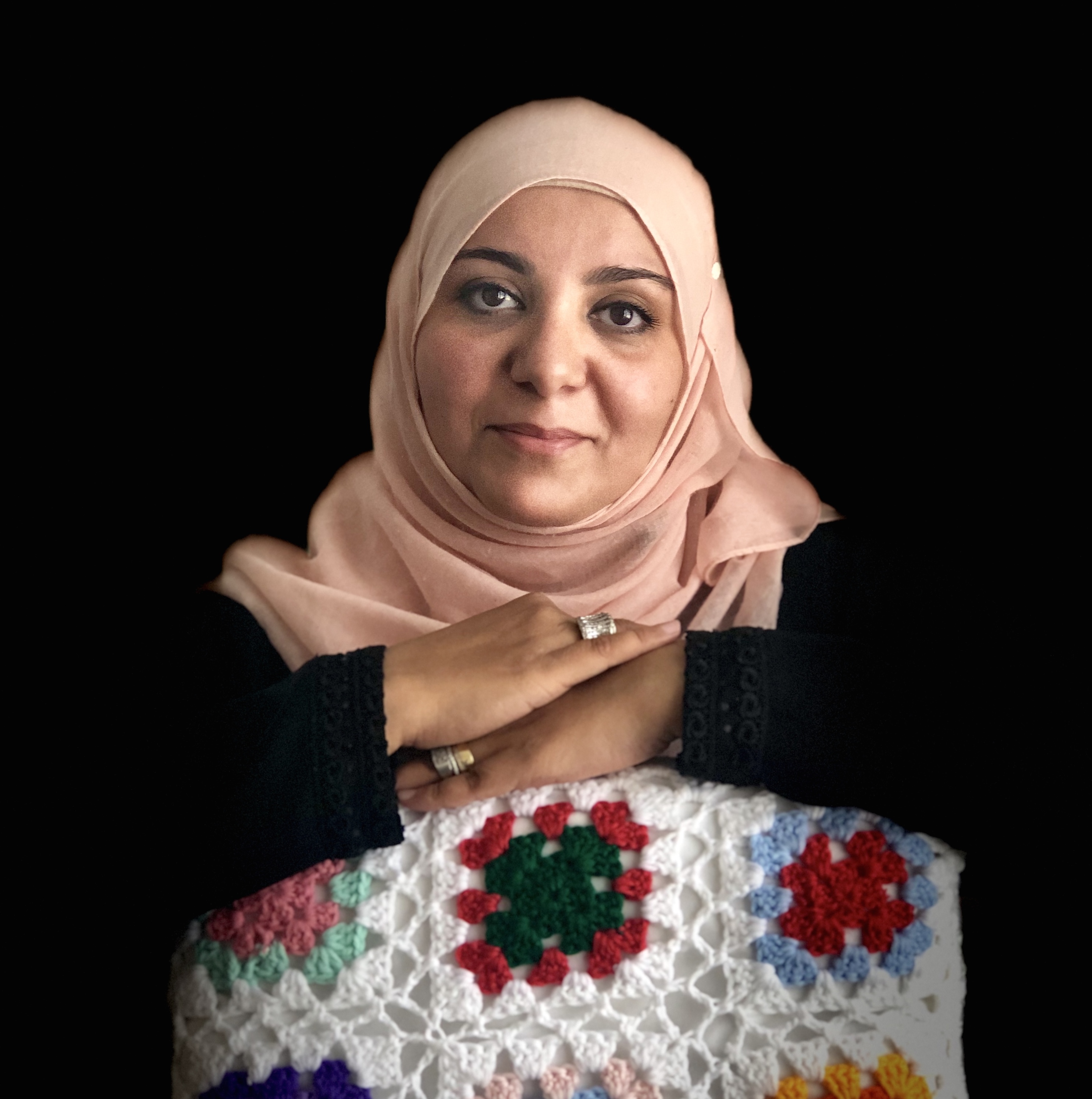By Hope McMath and Hala Khalil
The daily experiences in the current exhibition, Home: Stories of Arab Immigrant and Refugee Women, have been transformative. From students connecting with women artists who are refugees to conversations between strangers that call out our common humanity, the energy inside Yellow House pulses with curiosity, compassion, and creativity.
In this exhibition fifteen women, from Iraq, Syria, Egypt, and Palestine, share their realities of home and the reasons for coming to this country…either by choice or from forced displacement and war.
For all of the women whose stories are told in this installation, Jacksonville is now home. The process of integration is long and complicated. It is also unique to each woman and her family.
In this ongoing series we are amplifying the stories of the women in this show, with the hope that it will enlighten, inspire, and move us to action.
Today, I introduce you to Hala Khalil.
“I am from Egypt, the home of the ancient Pharaohs. I came to the US seven years ago for my husband’s work. We are blessed with four lovely children. I am an accountant, the same profession I practiced in Egypt. My hobby is crochet. I love my country Egypt so much and miss every moment I spent there, all the way down to the scent of jasmine flowers. My family and I are helping people from Egypt with a touch of our culture and tradition to help them to not feel so sad when they miss their country.
I notice that some people give me a weird look because of my physical appearance and actions as a Muslim woman. My holy book says not to hate the one who hates you. So, when people discriminate against me because of who I am, I just reply to them with a smile on my face, hoping one day they will realize I am not a bad person.
My first encounter with microaggression was at the airport. Lots of people were waiting outside the check-in counter and there were no empty seats. An elderly lady came in and was looking for a seat. I offered her mine. She was shocked and gave me a surprised look before giving me a smile and taking the seat. I was raised and taught to show respect towards older people and my Prophet said, “Whoever fails to honor our elders is not one of us.” Later when I was standing in the passport check-in line, a guy skipped me. I kept quiet and did not react. However, the lady whom I had given my seat to responded. She approached him and said, “What you did is very rude and you should go back to the end of this line.” The guy replied to her saying, “She’s a Muslim so she should go to the end of this line.” The lady kept defending me and fought for my rights until the guy left my space. I tried to stop her by saying “it is ok and I am fine” but she did not listen. She protected me.
There are many stereotypes about Muslims. The incident at the airport terminal is not the only one I have encountered. So, I made a promise to myself that I will take a step to debunk those stereotypes about Muslims and Islam by being engaged socially and helping others. I joined this refugee group not because I am a refugee myself, but because I want to show people that Muslims are good people and Islam is a religion of peace. We all can make this world a better place if we just stop believing in stereotypes and judging people based on their culture, religion, and complexion.”
How does Hala’s story impact your view of home? Of what it means to stand in solidarity? Of the roles which each of us play in creating communities that welcome?
Hala not only shares her story with us, but also her art from. Objects made from her own hands are part of the current exhibition, providing a beautiful, artful corner for us to sit, enter into dialogue with one another, and share a cup of tea.
Thank you for seeing Hala and the other women who so courageously share their art and their truth with us.
Photograph by Malath Alarnosi, another of the Home artists and founder of Artugee.


